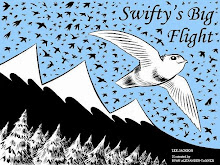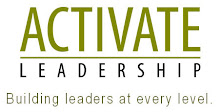The terms Weblog or blog are generic terms and do not just apply to Blogger sites. There are a wide variety of online tools that allow individuals or companies to build their own Weblog (typepad.com and livejournal.com are good examples). If you are interested in looking at more blogs, go to Technorati.com, pick a category and start surfing the Web.
The defining characteristic of a blog is that the content is organized chronologically or as an ongoing narrative. The word weblog comes from this characteristic - "web" because it is online and "log" because it is essentially an ordered list of content.
Why do I like them? Fast. Cheap. Easy. Powerful. Measurable.
Key advantages to using Weblogs for most business applications:
1. Speed. Weblogs can be established in minutes.
2. Cost. Weblogs generally have no hosting fees associated with them.
3. Flexibility. Today's Weblog programs are vastly more powerful and allow for more creativity than most Websites that we built just a few years ago. Adding content, whether it's video, audio, photos, stories, .PDF's, links, etc. is simple, fast and almost effortless.
4. Security. Weblogs can be viewed by the entire world or only those who you invite.
5. Measurability. With statistical code attached to the programming code, the behavior of visitors can be tracked easily, thus providing marketers with invaluable data.
6. Usability. Visitors or members (for private blogs) can post stories, comments and the like in a running dialog similar to how early chat rooms were comprised.
7. Collaboration. As issues are posted, members receive an email of the new posting. This increases the awareness of a particular issue among members of a private blog and is a powerful addition to any corporate communication information distribution system (damn, that's a mouthful to say)
More about Weblogs
Blogs started as personal online journals where individuals could share thoughts, comments, daily activities or anything else they felt like typing about. They gained popularity (and credibility) with news sources as well as a means of quickly sharing news and commentary online. For example, many columnists and sections at the New York Times have blogs online (which you can look at here: http://www.nytimes.com/ref/topnews/blog-index.html).
Corporate blogs have gained in popularity and credibility as well. Content for corporate blogs can vary greatly. They can be a running commentary from a key figure in the company, a place to share news on new products or services, a place to share relevant industry news and commentary on the news, and/or a forum for open dialogue between the company and the public.
Then there are blogs like Ascend Performance Group's - meant to be more of an online brochure.
Now to your big questions about why a blog instead of a traditional Web site. With a traditional Web site, your options are limited only by time, budget and creativity. With a skilled designer and programmer, you can build a Web site to look and function *exactly* how you want it to. With Blogger (and other blogging tools) you are somewhat limited by what the tools provide and allow. For example, almost all Blogger-made blogs will follow the two-column layout. You can change colors, fonts, add images and video, but you are somewhat locked in to the layout provided unless you have a somewhat advanced programming knowledge.
As far as credibility goes, blogs are a more and more accepted and valid form of online presence for companies. This may not have been true five years ago, but most people now do not have a bias between traditional Web sites and blogs.
That said, for Ascend's current purposes, we believe a blog is the right online channel at this time because:
1) We can get the blog up quickly. We do not need to spend time with a designer or programmer to layout and build the site.
2) We have control over our content. Again, it is very simple for us to edit content on the blog on our own, with out a programmer involved.
3) It's free. At some point, it may be worth paying to have a site built. But the tools provided by the blog/Blogger are enough to cover our needs for now.













